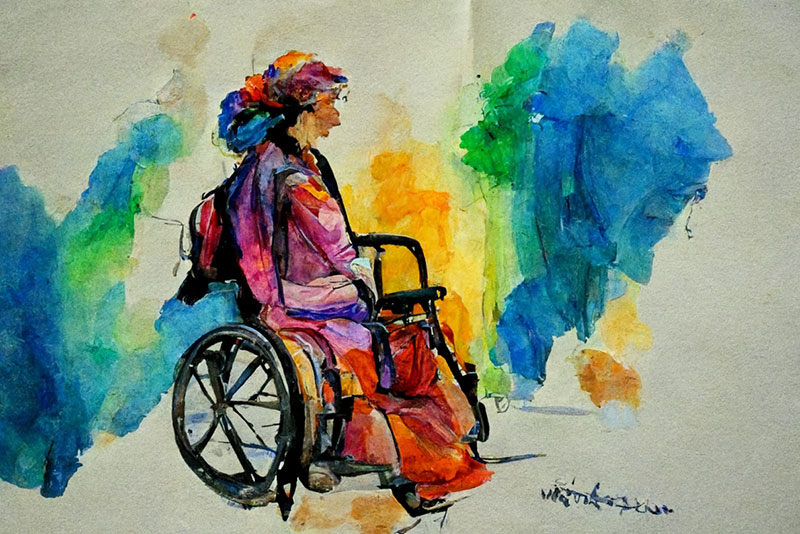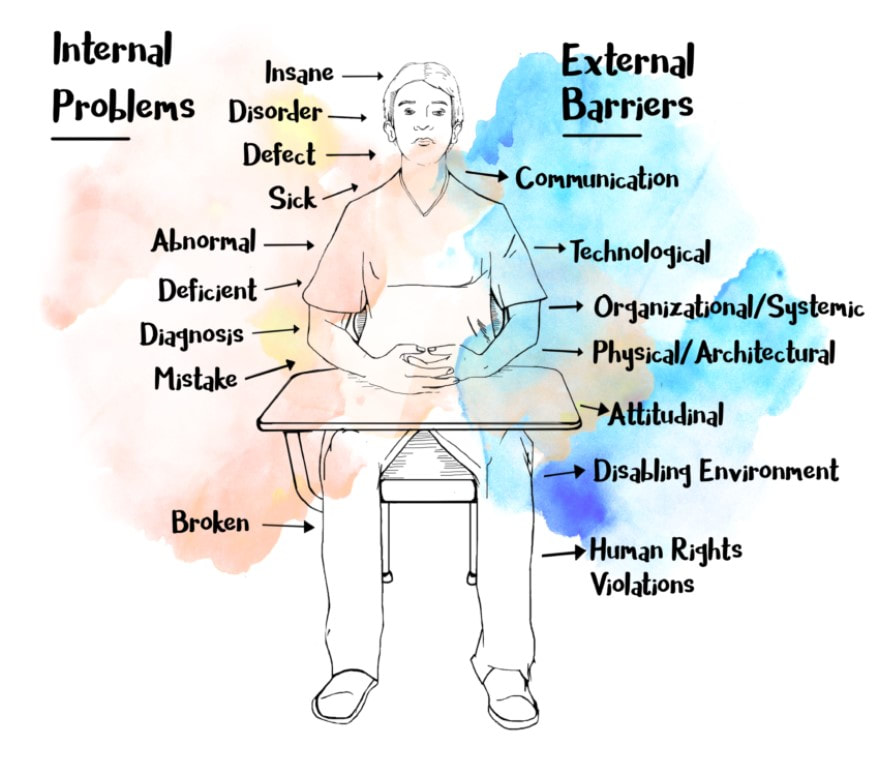There are no easy answers to the dilemma of having a hidden or other disability, especially while also being socially awkward, when a new acquaintance starts out encouragingly but then abandons the budding friendship.
You may have clues as to what might be turning a stranger off as they get to know you, but it is best not to make assumptions about other people's motivations.
I would do a couple of things. First, I would think about how I can get out in front of the issue - so potential friends don't build a false idea of who I am. If they are biased against ADA issues - good riddance, but it could be more of disappointed expectations, right? So I'd work out a wording that I would practice and then say with a confident smile about the disability that people who want to be my friend must accept about me.
In my case, I have trouble remembering people's names. When I was a public school teacher I made the students keep name tags visible on their desks the entire school year and I would still mix up two children . . . it was like I had a file drawer in my brain that I would open to get a name, but for those two children, they would both be in the same drawer and either name might pop out. I would tell my students about this issue on the first day of school, and advise them that if I messed up their name, to correct me at once, loudly if necessary.
I would talk about how important people's names are to them . . . using my first name as an example. I would write my name on the board and then point out the second "e" and talk about how it actually makes me angry when people spell my name without that second "e." I would tell it in a funny way - mocking myself. Students (and everybody) want their name pronounced correctly . . . a long story for a short idea - get ahead of the issue, and use it to showcase your ease and comfort with something they might find uncomfortable.
My name thing -- it ain't getting any better . . . so when I meet someone and learn their name, I usually say something like this, "Nice to meet you, George. I have trouble remembering people's names, so if I forget your name, I'll just call you 'Gloria.'" This ALWAYS gets a laugh, perhaps because of the twinkle in my eye when I deliver the line. People seem to like the name Gloria; I use the name for both men and women. This strategy is an effective ice breaker and allows me to relax about a true fact about me - I cannot remember people's names. If I can get the first letter I'm happy about it.
So be transparent - but in an amusing way that de-escalates tensions people might have about any or a particular disability.
The other thing is about what to do about the people who are ghosting you. Smile, greet them, and move on. They're not the drones you're looking for.
If they do return to you - I would just ask them what happened and be grateful to understand better what I'm signalling that makes someone uncomfortable. Could be their prejudice, could be I'm just "too much," could be a misunderstanding, could be their childhood trauma. Could be about you, could have NOTHING to do with you.
I guess a final thing is that to have a friend you have to be a friend. Be a good listener, don't expect anything - I find those approaches keep me less vulnerable to disappointment . . . eventually, everyone disappoints me . . . but I get to decide if it's a deal breaker. And if I'm too much for others . . . that's okay. I get to be me.
I hope this helps.
Dr. P-J
You may have clues as to what might be turning a stranger off as they get to know you, but it is best not to make assumptions about other people's motivations.
I would do a couple of things. First, I would think about how I can get out in front of the issue - so potential friends don't build a false idea of who I am. If they are biased against ADA issues - good riddance, but it could be more of disappointed expectations, right? So I'd work out a wording that I would practice and then say with a confident smile about the disability that people who want to be my friend must accept about me.
In my case, I have trouble remembering people's names. When I was a public school teacher I made the students keep name tags visible on their desks the entire school year and I would still mix up two children . . . it was like I had a file drawer in my brain that I would open to get a name, but for those two children, they would both be in the same drawer and either name might pop out. I would tell my students about this issue on the first day of school, and advise them that if I messed up their name, to correct me at once, loudly if necessary.
I would talk about how important people's names are to them . . . using my first name as an example. I would write my name on the board and then point out the second "e" and talk about how it actually makes me angry when people spell my name without that second "e." I would tell it in a funny way - mocking myself. Students (and everybody) want their name pronounced correctly . . . a long story for a short idea - get ahead of the issue, and use it to showcase your ease and comfort with something they might find uncomfortable.
My name thing -- it ain't getting any better . . . so when I meet someone and learn their name, I usually say something like this, "Nice to meet you, George. I have trouble remembering people's names, so if I forget your name, I'll just call you 'Gloria.'" This ALWAYS gets a laugh, perhaps because of the twinkle in my eye when I deliver the line. People seem to like the name Gloria; I use the name for both men and women. This strategy is an effective ice breaker and allows me to relax about a true fact about me - I cannot remember people's names. If I can get the first letter I'm happy about it.
So be transparent - but in an amusing way that de-escalates tensions people might have about any or a particular disability.
The other thing is about what to do about the people who are ghosting you. Smile, greet them, and move on. They're not the drones you're looking for.
If they do return to you - I would just ask them what happened and be grateful to understand better what I'm signalling that makes someone uncomfortable. Could be their prejudice, could be I'm just "too much," could be a misunderstanding, could be their childhood trauma. Could be about you, could have NOTHING to do with you.
I guess a final thing is that to have a friend you have to be a friend. Be a good listener, don't expect anything - I find those approaches keep me less vulnerable to disappointment . . . eventually, everyone disappoints me . . . but I get to decide if it's a deal breaker. And if I'm too much for others . . . that's okay. I get to be me.
I hope this helps.
Dr. P-J


 RSS Feed
RSS Feed